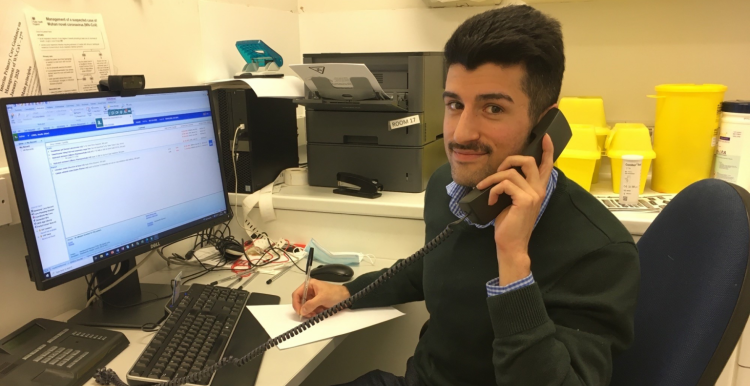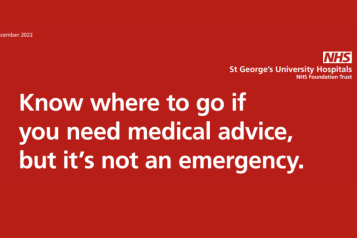The Clinical Pharmacist will see you now

Clinical Pharmacists are playing an increasingly important part in the care GP practices are offering their patients.
As well as detailed reviews of medication, they talk to people about their overall health and welfare, helping people to live healthier and more fulfilling lives.
Ryan Benbow is the Lead Clinical Pharmacist for the Brocklebank Primary Care Network (PCN) in Wandsworth. Based across the PCN’s three sites – which include the nearby Haider Practice and St Paul’s Cottage Surgery – he leads a team of four clinical pharmacists who serve 30,000 local people.
“Clinical pharmacists can bring many specialist skills to general practice,” Ryan says. “Patients benefit from having thorough medication reviews as well as quick and efficient access to medicines. We can also help people get the best out of the medicines they’re taking and help to ensure they are taking them safely.”
One patient who has benefitted from the support of Ryan’s team is Jenny*, a woman in her mid-50s with Type 2 Diabetes and obesity. Ryan undertook a full review of her medication and lifestyle and looked at how her condition was being managed. This led to her and Ryan agreeing on ways she could increase her physical activity and understand how to eat healthily, with prescribed support and adjustments to her medication.
“By working to lose weight and living a more active lifestyle, Jenny has been able to control her diabetes,” Ryan said. “Her overall health, mood and outlook have also shown a significant improvement.
In a typical week, Ryan and his team see around 500 people across the three practices. Currently, the majority of consultations are with people in the 25-40 age group, but the team also works pro-actively with older people.
A recent patient satisfaction survey found that 100% of the people surveyed were happy to be consulted again by the clinical pharmacist and felt that their needs and expectations had been met in their consultation.
Ryan said: “We were very pleased with this feedback and it gives us great confidence in the important and evolving role that clinical pharmacists can play in supporting GPs and other practice staff in providing the best possible care to our patients.”
Ryan says that when the Brocklebank Partnership first launched its clinical pharmacy function, some patients were sceptical: “We had a job to do to explain to people what we actually do, they wondered why they couldn’t just see a GP,” he says. “As people started to understand the benefits of the new way of working, including shorter waiting times, that resistance fell away but people are still always able to see a GP if they wish to.”
Connecting patients with other services and support
The Clinical Pharmacy’s team make good use of social prescribing which connects people to community groups and health and care services for practical and emotional support.
“We work closely with wider community,” Ryan says. “We have strong partnerships with the voluntary sector including Age UK, Macmillan Cancer Support, Trinity Hospice and with drugs and alcohol support services in Wandsworth, as well as first contact physiotherapists and mental health crisis teams.”
The pharmacy team are also involved in developing new local services to help meet the demands of the community. “Quite early on, I realised that there was a demand and need for same day care,” Ryan says. “I undertook a diploma to specialise in minor illness and this allows me to take some of the workload off GPs and see more people on a day-to-day basis.”

